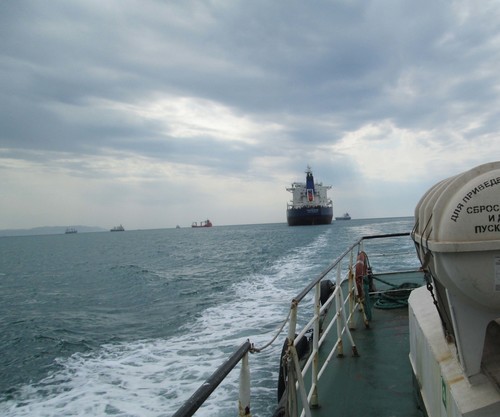ÐÎÑÑÈÉÑÊÈÉ ÏÐÎÔÅÑÑÈÎÍÀËÜÍÛÉ ÑÎÞÇ ÌÎÐßÊÎÂ
SEAFARERS' UNION OF RUSSIA
A NON-UNIONIZED SEAFARER
IS AN UNPROTECTED SEAFARER
Back
“Unscrupulous shipowners” blamed for putting crew change efforts at risk

Global efforts to resolve the crew change crisis are being undermined by “unscrupulous shipowners”, Yury Sukhorukov, president of the Seafarers’ Union of Russia (SUR), told Safety at Sea (SAS). As many as 200,000 seafarers are still stranded at sea because of border closures and immigration restrictions embarked on by most countries to tackle the COVID-19 pandemic.
Despite many governments attempting to restart sustainable crew change processes, Sukhorukov said that an outbreak of COVID-19 aboard Russian fish carrier vessel Ice Stream, which came into contact with port workers on 21 June 2020, could have “far-reaching consequences for all seafarers, putting the huge work we have done over the past two months to ease the sanitary restrictions at risk”. He blamed the actions of the shipowner for creating this risk.
“The captain felt unwell and was taken to a hospital for medical tests, and shortly after the vessel left the port, the test showed positive for the coronavirus,” Sukhorukov recounted. “The shipowner acted irresponsibly. Instead of returning the vessel back to the port to test the whole crew, he just reported the information to the port’s agent in Busan.”
The Ice Stream incident prompted South Korea’s Ministry of Health to order that all Russian ships calling at the country’s ports are to be quarantined for 14 days. According to Sukhorukov, on the back of this incident, other countries may also tighten, rather than relax, seafarers’ travel restrictions.
The SUR has recently come up with a proposal to establish regular changeovers of crew members in major Russian ports, where Rospotrebnadzor – Russia’s federal agency for wellbeing and consumer rights – has facilitated and harmonised the crew change procedures. Even so, the procedures currently vary from region to region. However, Sukhorukov said the idea is still under consideration.
He added that while the overall situation is improving – for example, Singapore, Hong Kong, Malaysia and Reunion port in Africa are allowing crew changeovers – it is not enough to address the current issues.
“An enormous number of seafarers are working beyond their contractual terms since the beginning of the pandemic as they simply cannot disembark from their ships. The situation where a seafarer has worked two contract terms and stayed on board for more than a year is not unique anymore,” Sukhorukov said. He added that in many countries, seafarers are not able to get even basic medical assistance such as dental work, nor essential care for crew who had suffered strokes because of the quarantine restrictions.
“In some particular countries, the situation is way better. For example, in the United Kingdom, stranded seafarers have good access to medical aid,” he noted.
Crew isolation has also sparked frustration and annoyance. SAS reported that crew members stranded on an abandoned Vietnamese tanker in Malaysia sprayed the words “Help us. No food. No salary” on the vessel’s hull after they ran out of supplies. Due to the conditions many crew members are dealing with, seafarers are also struggling with depression and anxiety.
In one letter to the SUR, a captain expressed concerns that after eight months of service, he no longer felt confident in his actions. He complained of sleep disturbance, panic attacks, and some body pain of unclear origin. “In situations like this, seafarers should be urgently disembarked because they could no longer be trusted with their colleagues’ lives,” Sukhorukov said.
“If the forecasts of the WHO are correct that the second wave of COVID-19 is coming, [the] maritime industry is not prepared to face it because ITF, IMO, UN calls to the world governments to recognise seafarers to be ‘key workers’ and to create conditions for their normal work have not led to the expected results,” stressed Sukhorukov.
“Unfortunately, the situation is likely to get worse. We are going to live in this pandemic for a year, two or more years to come, and if the situation is not effectively changed the world supply chains could be destroyed; sooner or later we will see maritime accidents caused by the crews’ fatigue. And only God knows how many seafarers may die and what harm this would cause for ecology,” he added.
Up
